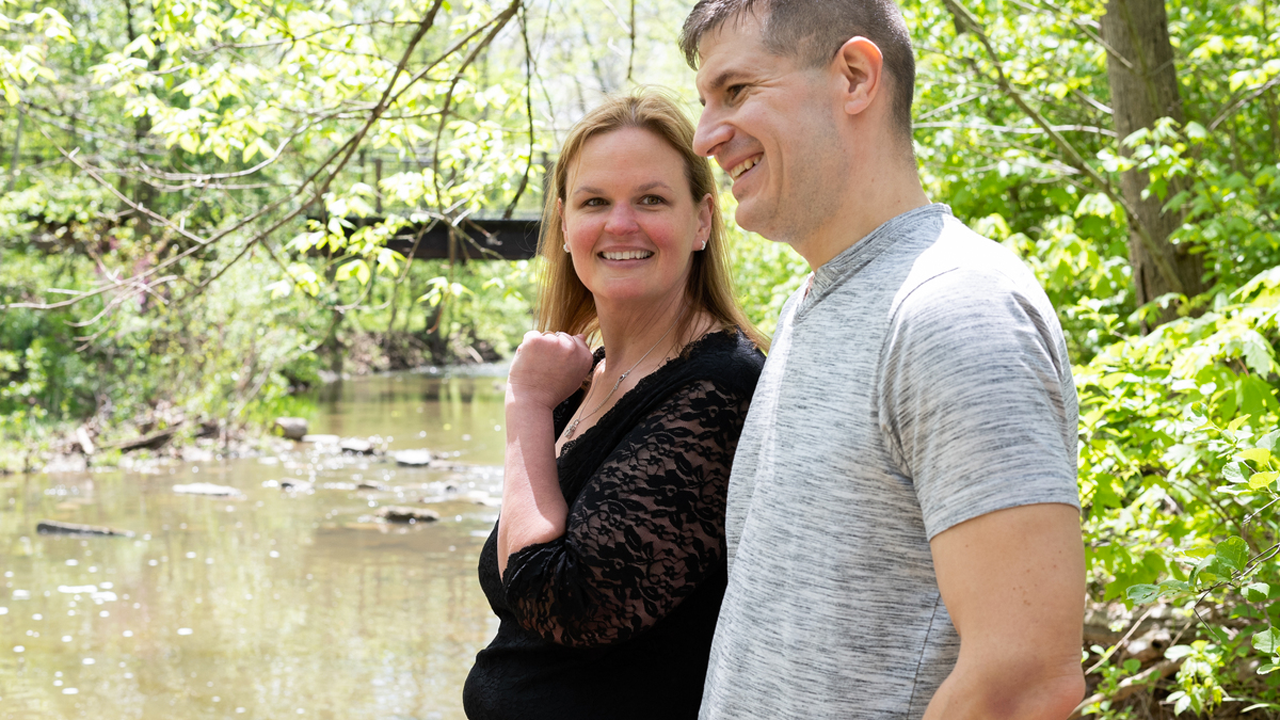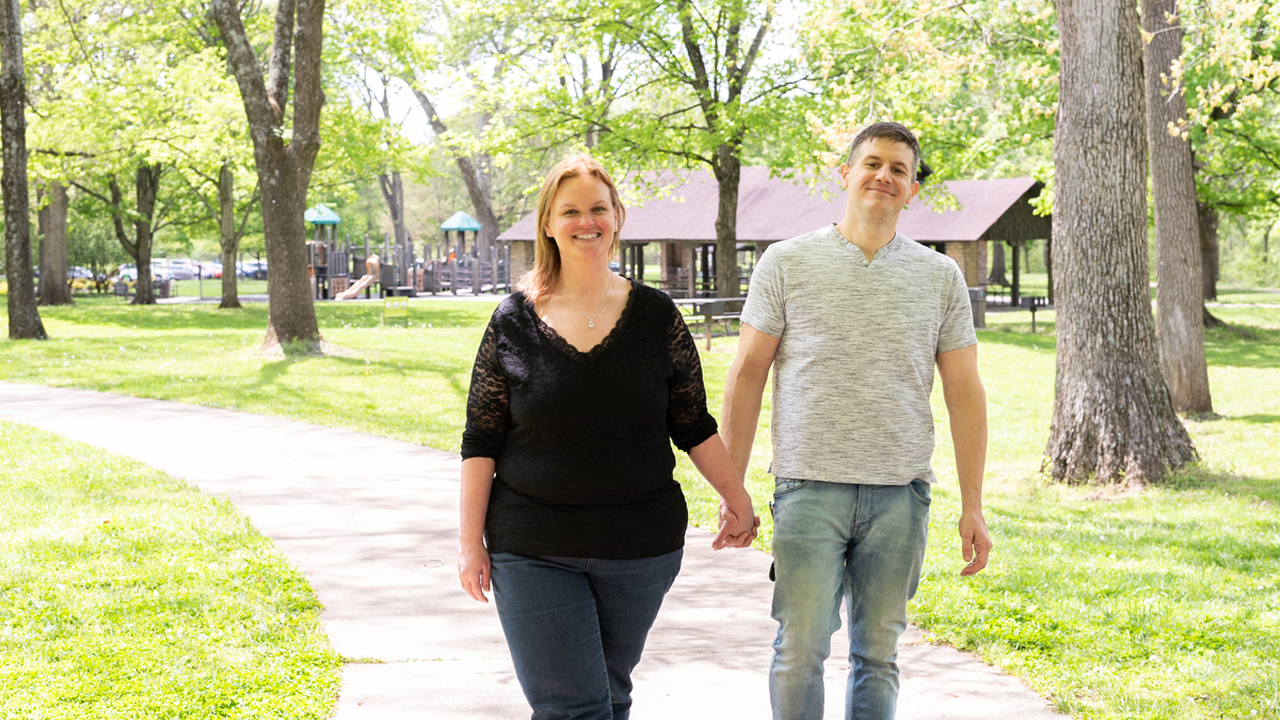Whether Kami is placing her head lovingly on Jake’s shoulder or Jake is jokingly sticking his tongue out at Kami, their chemistry is strong and immediately apparent.
Jake and Kami spend a lot of time together because, as they’ll both tell you — they truly enjoy each other’s company. Whether it’s going out for dinner, traveling or having bariatric surgery, they do everything together.
Bariatric surgery?
That’s right, Jake and Kami had bariatric surgery together — on the same day, performed by the same surgeon, at the same hospital.
They chose UC Health’s Weight Loss Center and West Chester Hospital to help them with their weight loss journey. Their story, however, begins long before that memorable day of surgery.
Childhood Memories
“I was an athletic, skinny kid, but once puberty arrived, the weight just kept coming on,” Jake says today. “It has been something that I have struggled with since my teenage years.” Growing up in an Italian family, large meals were a centerpiece of activities and gatherings. “My mom always made sure we ate healthy, but it was the portions and the amount of food available that was challenging.”
“Growing up with oversized portions, you were supposed to clean your plate,” he adds. “It’s actually counter intuitive when you’re overweight and your parent tells you that there are starving kids in parts of the world and that they would love to have this food. You get it in your head that this is what I’m supposed to eat – this I my portion and it’s huge.”
Kami started to gain weight during elementary school. “In second grade, I started putting on weight. By third grade, I was on a diet,” she recalls. Even at that young age, Kami’s mom took her to several diet programs.
For Kami, eating was an outlet for stress and emotions. “I literally could binge on any food. I just like food,” she says. “If I was mad, I would eat. If I was bored, I’d eat. If there was something I didn’t want to do and was procrastinating, I’d eat.”
The pattern of weight gain continued as both of them transitioned into adulthood.
A Life of Wedded Bliss
Jake and Kami first met in 2005, were engaged one year later and another year after that, were happily married. “We both gained more weight once we were married,” says Kami. “We ate out a lot,” she adds, “Our restaurant portions were huge — it’s an enormous amount of food. But we did not have a problem eating all of it and even ordered dessert, too.”
As time passed and they were living a happy, blissful life together, the pounds continued to add up for both of them.
Kami also experienced a devastating loss — her mom passed away from breast cancer. Dealing with the grief, food was her relief, and she gained 40 pounds.
It was during a 2018 trip with another couple to Gatlinburg, Tennessee, that Kami first noticed how the extra weight was impacting her life. “I kept getting winded, my back was killing me and I could not keep up. Our friends drove the go-carts and I did not want to, because really I did not want to get stuck in a cart.”
A Reality Check
Kami realized that the mentality she had adopted led her down a specific path throughout her life. “In my 20s, I weighed in the 200s, and in my 30s, I weighed in the 300s. When I turned 40, I weighed 368 pounds and was afraid that I’d hit the 400-pound mark.
Thinking about her mother’s death, Kami and Jake decided to do some research, learning that obesity increases the risk of some cancers as well as many other illnesses and conditions, including diabetes, high blood pressure and high cholesterol.
That’s when I looked into weight-loss surgery,” she says. Kami decided to attend a free informational seminar offered by the UC Health Weight Loss Center.
Jake planned to attend the seminar with Kami to offer morale support. “Originally, I was not considering surgery, I was going for Kami. I knew that the Gatlinburg trip was an eye-opener for her. And we both knew that weight had been an ongoing issue for both of us.”
Jake and Kami went to the seminar together and listened to what the UC Health Weight Loss Center team had to say. A light bulb went off for Jake. “Everything they were saying about weight, losing and gaining weight, and never being able to keep it off was so true,” he says.
At the seminar, the UC Health Weight Loss Center team also talked about yo-yo dieting. As he listened, Jake started thinking. “I remembered a time in my 20s when I was able to get it together. Kami and I were dating, and I lost a lot of weight. But it all came back on, plus more. I also had some injuries so I was not able to exercise like I had been. So, I lost the weight, gained it back, gained more, lost a little, gained more just like they were talking about.”
Jake and Kami learned that UC Health’s weight loss program provides medical support and counseling to help them gain control of their weight and maintain that weight loss through behavior modification. “This is what convinced me to go on the journey with Kami,” he says.


